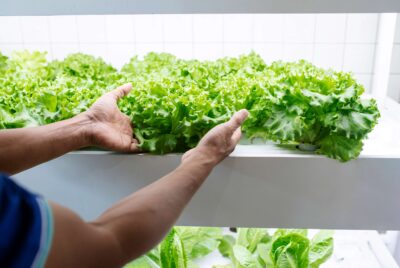Can you eat grape seeds?
Introduction
It is the peak of summer and you are harvesting some big juicy grapes from your garden! I often encounter questions about the edibility and potential risks of eating grape seeds. Grapes are known for their delectable taste and numerous health benefits, but what about their seeds? In this article, I will delve into the controversy surrounding grape seed consumption, discuss the nutritional value, explore potential health benefits, address concerns and risks, and provide helpful suggestions for incorporating grape seeds into your diet safely.
The Nutritional Value of Grape Seeds
Grape seeds are a rich source of nutrients and bioactive compounds. They contain essential fatty acids, antioxidants, vitamins, minerals, and polyphenols. These components contribute to their potential health-promoting properties. Research suggests that grape seeds may offer various health benefits. The antioxidants found in grape seeds, such as proanthocyanidins, have been associated with cardiovascular health, anti-inflammatory effects, and potential anticancer properties. Additionally, grape seeds may support skin health, cognitive function, and overall well-being.
The Controversy Surrounding Grape Seed Consumption
There is a debate regarding the safety and advisability of consuming grape seeds. Some argue that grape seeds are safe to eat and provide additional nutritional value, while others raise concerns about potential risks and the presence of compounds like tannins and phytates.
Concerns and Risks
One concern associated with grape seed consumption is the presence of tannins, which may cause digestive discomfort in some individuals. Additionally, grape seeds contain phytates, which can inhibit the absorption of certain minerals. However, the risks associated with consuming grape seeds are generally low, and the potential benefits may outweigh the concerns for most people.
Safe Ways to Consume Grape Seeds
If you decide to consume grape seeds, it is essential to do so in moderation and take certain precautions. Here are some suggestions for safely incorporating grape seeds into your diet:
- Chewing Thoroughly: Chew the grape seeds thoroughly to break them down and aid in digestion.
- Blending or Grinding: Blend or grind grape seeds before consuming them to make them easier to digest and incorporate into recipes.
- Incorporating in Culinary Creations: Add ground grape seeds to smoothies, baked goods, or sprinkle them over salads for added nutrition and texture.
Grape Seed Extract and Supplements
An alternative to consuming whole grape seeds is grape seed extract or supplements. These products are typically standardized to provide concentrated amounts of beneficial compounds found in grape seeds. Consult with a healthcare professional before starting any supplements.
Incorporating Grape Seeds in Recipes
For those who prefer not to consume whole grape seeds, there are creative ways to incorporate their nutritional benefits into recipes. Try adding grape seed oil to salad dressings or using it for sautéing vegetables. Grape seed flour can be used as a gluten-free alternative in baking.
Final words…
In conclusion, the decision to eat grape seeds is a personal one. While grape seeds offer potential health benefits, there are concerns to consider, such as tannins and phytates. However, for most individuals, consuming grape seeds in moderation is unlikely to pose significant risks. If you choose to consume grape seeds, remember to chew them thoroughly and explore alternative options like grape seed extract or incorporating grape seed oil in your recipes. As with any dietary decision, it is best to consult with a healthcare professional for personalized advice.
FAQs
- Are grape seeds safe to eat? Eating grape seeds is generally safe for most individuals. However, some may experience digestive discomfort due to the presence of tannins. Chew them thoroughly or opt for alternatives like grape seed extract if you have concerns.
- What are the potential health benefits of grape seeds? Grape seeds contain antioxidants and other beneficial compounds that may support cardiovascular health, possess anti-inflammatory effects, and potentially offer anticancer properties. They may also contribute to skin health and cognitive function.
- Can I consume grape seed extract instead of eating whole grape seeds? Yes, grape seed extract or supplements provide concentrated amounts of beneficial compounds. Consult with a healthcare professional before starting any supplements.
- How can I incorporate grape seeds in my diet? You can chew them thoroughly, blend or grind them before consumption, or use grape seed oil in cooking. Grape seed flour is also a gluten-free alternative for baking.
- Are there any risks associated with eating grape seeds? While the risks are generally low, some individuals may experience digestive discomfort or potential mineral absorption inhibition due to tannins and phytates. Moderation and individual tolerance are key factors to consider.





